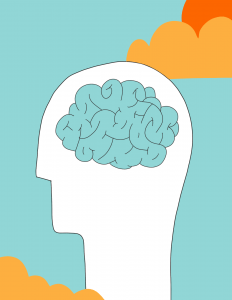Are you interested in clinical psychology? Here are some degrees that you can pursue:
Master’s Degree in Social Work (M.S.W)
- Description: Provides training to be a practitioner working in a mental health clinics, hospitals, nursing homes, human service agencies, or private practices.
- Tuition: Programs are funded through loans and no tuition waivers offered. No teaching or research assistantships offered.
- Admission: Less competitive han Ph.D programs
- Time Frame: 2 years of coursework, including 450 hours of field placement and licensure.
Ph.D in Clinical Psychology
- Description: A research-based degree providing training to be scientists, scholars, and practitioners. Outcomes are versatile, from working in health care or private practice settings, to teaching in universities to continue research.
- Tuition: Fully funded. You are granted a stipend alongside teaching and/or research assistantship
- Application process: Apply to work with a certain mentor, which will facilitate your dissertation. Do extensive research on what field/professors you are interested in, and ensure that the professor you choose will be accepting applicants for that year. Otherwise, if that mentor is not accepting applications, then the applicant will not be accepted into the program
- Admission: Very competitive
- Time frame: 4 to 5 years of graduate school, 1 year APA-approved clinical internship is mandatory for degree completion, and possibly a postdoctoral position
Psy.D in Clinical Psychology
- Description: Contrast from a Ph.D in Clinical Psychology, a Psy.D in Clinical Psychology is heavily based on coursework and clinical experiential training, rather than research. A Psy.D provides training to be a practitioner in private practice or community mental health centers.
- Tuition: Programs are funded through loans and no tuition waivers offered. No teaching or research assistantships offered.
- Admission: Typically less competitive than clinical psychology Ph.D programs. Some programs prefer applicants with more work and life experience
- Time frame: 4 years of graduate school (sometimes 3 years), 1 year APA-approved clinical internship is mandatory for degree completion
M.D. and Residency in Psychiatry
- Description: After completing a medical degree, candidate can choose to do their residency in psychiatry. Psychiatrists can work in health care of private practice settings. Psychiatrists can prescribe medication, but typically do not perform psychotherapy (compared to Ph.Ds in clinical psychology who typically do psychotherapy, but cannot prescribe medication)
- Tuition: Medical school will be funded through loans and no tuition waivers are offered. Will start earning a salary during residency.
- Admission: Very competitive
- Time Frame: 4 years of medical school, 4 years of residency, 2 years of fellowship (optional)
M.D./Ph.D in Psychological/Brain Sciences
- Description: This degree combines a medical degree alongside a Ph.D in the sciences. Those who pursue MD/Ph.D programs move between the clinical and research realms of their field. For example, career possibilities could include teaching in a university setting while performing research and seeing patients.
- Tuition: Fully funded
- Admission: Very Competitive
- Time Frame: 4 years of medical school, 4-6 years to complete Ph.D degree, additional years for residency if desired
Looking for resources to prepare for your career in psychology? Visit Resources for Careers in Psychology
Want a professor’s insight and advice on what classes to take, activities to pursue, and gap year activities in pursuing a clinical psychology degree? See Dr. Jane Mendle’s interview here.

